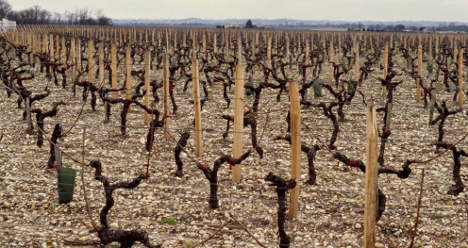The rise of the oceans, and the destruction of traditional crops can sometimes seem like a distant prospect, but a report by US based researchers released on Monday makes frightening reading for French wine-enthusiasts and more so for the vineyard owners in the famous wine regions in southern France.
As much as 86 per cent of all production in the regions of Bordeaux and the Rhône Valley, is set to be wiped out within less than four decades, according to a study published in the American ‘Proceedings of the National Academy of Sciences’.
According to the report, which tested four climate change models, the changes predicted by 2050 will offset the delicate balance required to cultivate wine grapes, and could render almost all vineyards worthless in the ‘Bordelais’ and ‘Vallée du Rhône’ areas.
It’s a shocking finding, and one which appears to have surprised even the study’s main author, Lee Hannah.
“When we started out, we thought this was science fiction and now we are pretty sure it is science fact,” Hannah was quoted as saying by French financial daily Les Echos.
However, while the demise of France’s trademark Bordeaux and Côtes du Rhône brands is a sad prospect, wine-lovers could well get to sample the birth and growth of entirely new regional labels, as production moves north.
As the average temperature increases by between 2.5 and 4.7° C, “southern France will see a lot of declining suitability,” Hannah told AFP.
One wine expert is taking a positive view of the predicted changes to the wine-making map.
"Some people are alarmists, I prefer to be an optimist. I have no doubt that we will still have vineyards in traditional regions, but we have to think of new strategies. And we will also have new zones for vineyards. That's for sure," Fernando Zamora, a specialist wine researcher, told AFP.



 Please whitelist us to continue reading.
Please whitelist us to continue reading.
Member comments